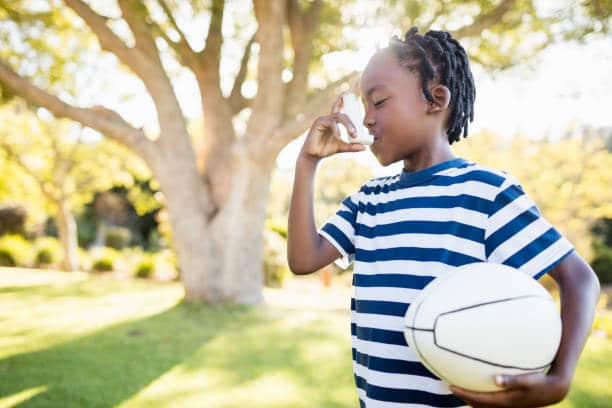
Asthma is the most common chronic disorder of childhood and affects more than 5 million children younger than 18, according to the U.S. Centers for Disease Control and Prevention. Additionally, only 7.7 percent of white children under 18 have asthma compared with 12.6 percent of Black children.
Parents of children with moderate-to-severe asthma may have a much-needed treatment option: A new trial finds that an injected monoclonal antibody drug called dupilumab significantly reduces a child’s odds of serious asthma attacks and improves lung function.
“We were not surprised, because dupilumab was very effective in clinical trials in adults and adolescents, but we were delighted with the results and the hope they bring to children and their families,” trial lead investigator Dr. Leonard Bacharier shares. He’s an asthma specialist at Monroe Carell Jr. Children’s Hospital, part of Vanderbilt University Medical Center in Nashville, Tenn.
One expert who wasn’t connected to the trial was encouraged by the findings, calling them “very exciting.”
“I am especially impressed with the study design, which combines patient-reported outcomes with markers of lung function,” Dr. Michael Grosso, chief medical officer and chair of pediatrics at Huntington Hospital, in Huntington, N.Y. says. Tthe drug “was found to be effective both ways – in how patients feel and how their lungs are working — is very important.”
RELATED: How to Prevent Your Child With Asthma From Bullying
How dupilumab works
Dupilumab (Dupixent) received U.S. Food and Drug Administration approval for use in children ages 6-11 in October. The biologic drug targets type 2 inflammation in asthma and has been approved for the treatment of asthma in adults and adolescents for several years. The new study was funded by Sanofi and Regeneron Pharmaceuticals, which make dupilumab.
The phase 3 clinical trial involved more than 400 children ages 6-11 with uncontrolled moderate-to-severe asthma. It found the drug to be highly effective.
In the study, the children received dupilumab or a placebo in addition to their standard therapy every two weeks for a year.
Most of the children in the study had type 2 inflammation. Among those kids, the rate of severe asthma attacks — those requiring steroid treatment, emergency care or hospitalization — was nearly 60% lower among those who received dupilumab versus those who hadn’t, Bacharier’s group reported.
Children with type 2 inflammation who received the drug also had improved lung function and improved asthma control.








